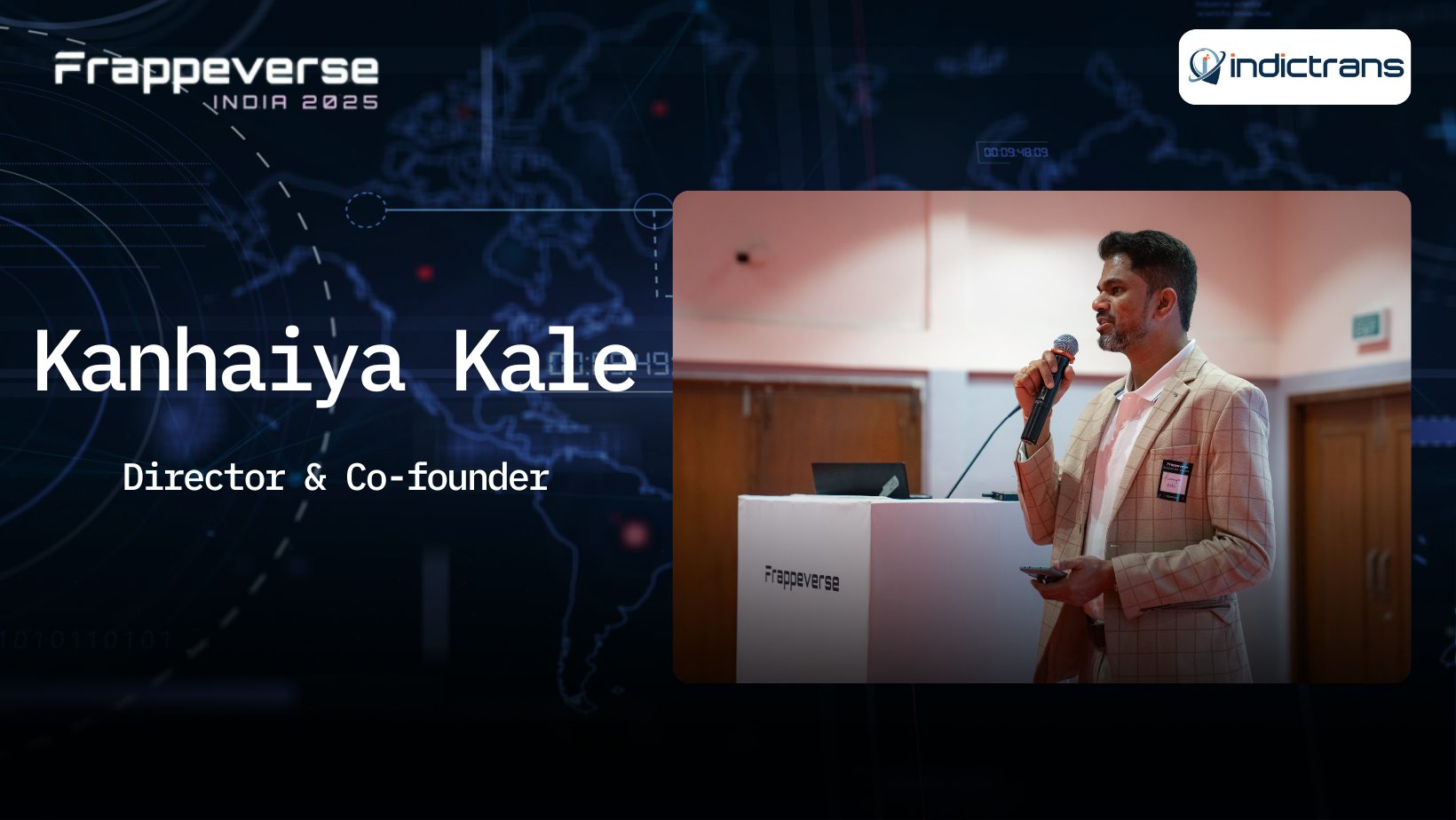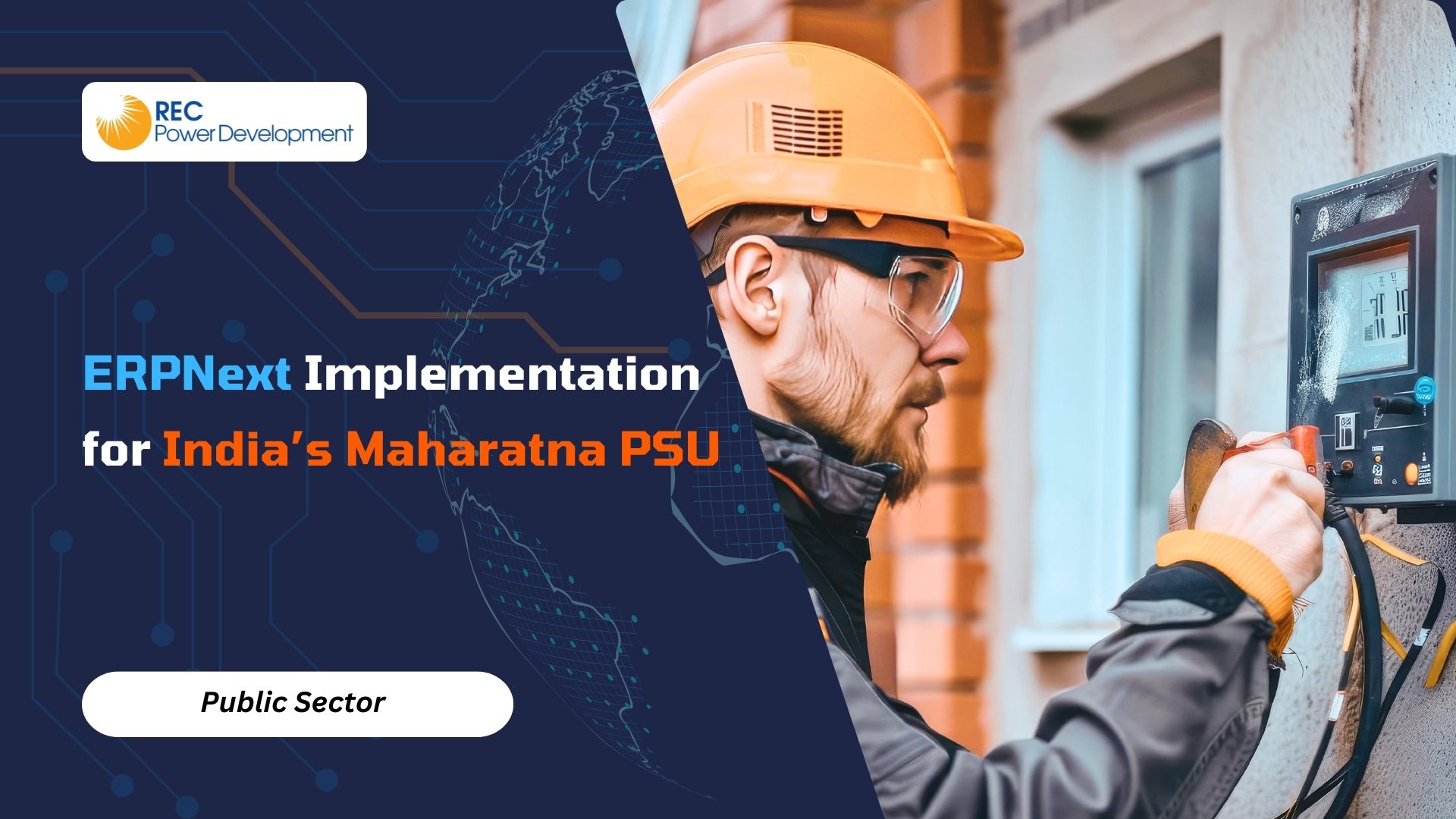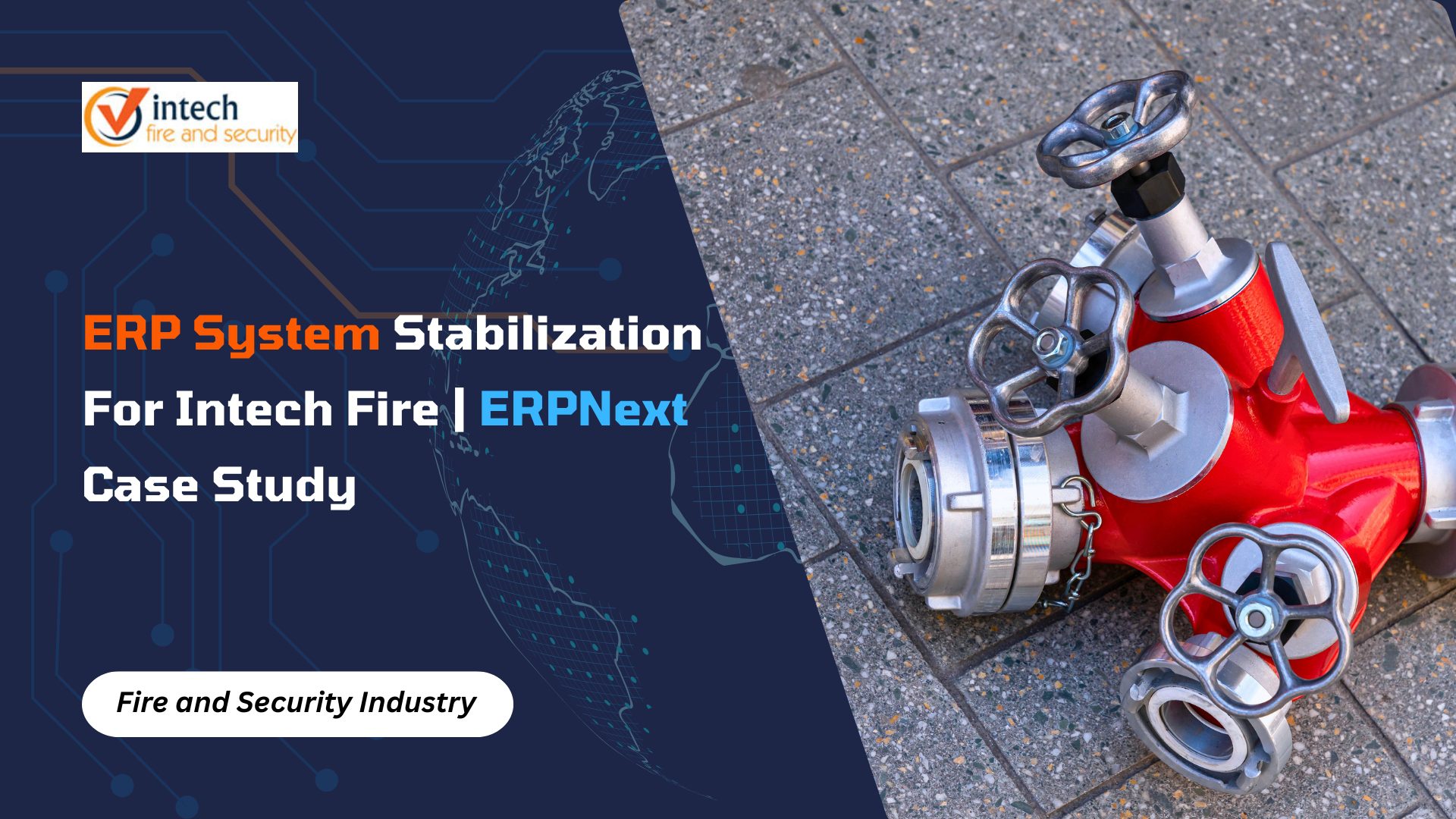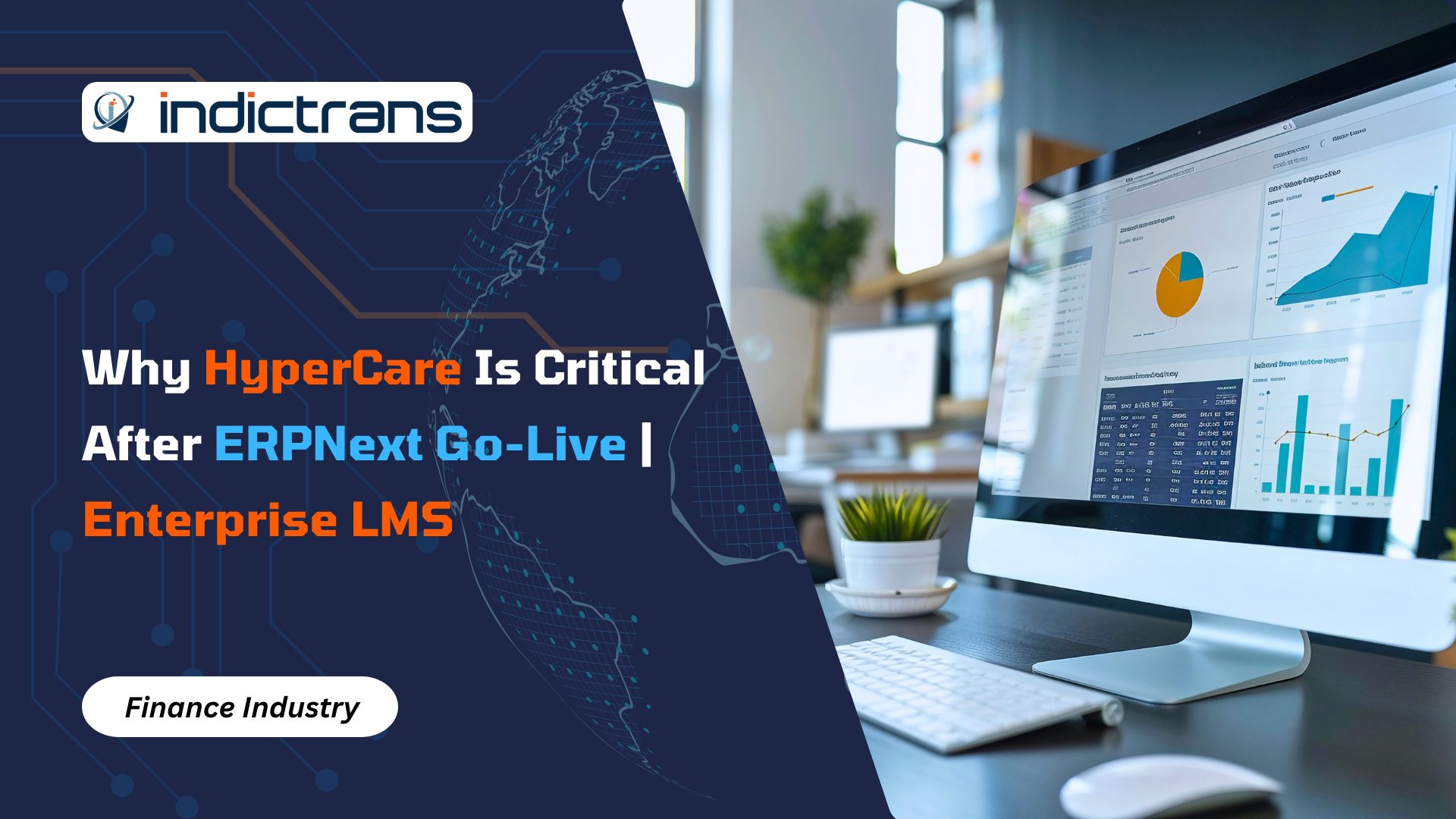A Keynote by Kanhaiya Kale, Co-founder of New Indictrans Technologies Pvt. Ltd., at Frappeverse 2025
We’re thrilled to share a keynote that encapsulates(or we can say – sum up) our 16 years of growth, discipline, and partnership within the Frappe ecosystem.
At New Indictrans Technologies, we are proud to be one of Frappe’s oldest partners and currently an experienced Gold Partner, a testament to our unwavering commitment to the ERPNext platform.
This deep relationship recently led to a great honor: Frappe invited our Co-founder & Director, Kanhaiya Kale, to speak at Frappeverse 2025 and share our unique journey. It was a moment of reflection and gratitude.
His session, “Audit to Action: How Frappe PMM Made Us Better,” isn’t just a success story; it’s a candid look at how even an experienced Frappe Certified Gold Partner, dedicated to implementing ERPNext for others, was compelled to turn the focus inward.
Kanhaiya Kale shared the transformational story of how a seemingly casual audit introduced us to the Process Maturity Model (PMM), forcing us to move from scattered operations to a metrics-driven, unified business running fully on ERPNext.
Let us take you behind the journey that shaped who we are today…
The Wake-Up Call We Didn’t Expect
At Indictrans, we live and breathe ERPNext. We pride ourselves on helping countless customers streamline their operations using the power of Frappe’s open-source ERP. But what happens when the one you’re selling isn’t the one you’re truly using?
This was the uncomfortable truth Co-founder Kanhaiya Kale realized during a seemingly casual interaction with a representative from Frappe Technologies. What started as an open discussion about business operations turned into a pivotal moment for Indictrans. A few days later, an email landed with a title that raised eyebrows: our Audit Report. This report introduced us to the Process Maturity Model (PMM), and it revealed a stark reality: we weren’t “walking the talk.”
“We were one of the partners who were having everything automated. So we were quite happy and in the next couple of days I got an email from the Frappe team and I saw the outcome of it, and that day I got to know it was an audit, PMM audit, and I that day I came across it was a PMM audit process which got implemented, and that opened our eyes.” [03:43]
Before Transformation: The Struggle for Clarity
The PMM audit was a mirror, reflecting the disjointed and chaotic nature of our internal processes. While we had procedures in place, they were scattered across different tools and, most critically, multiple Excel files.
Before the transformation, Kanhaiya Kale didn’t have immediate, reliable answers to basic business health questions:
- Profitability: Which projects are profitable, and what is the actual consumption of resources?
- Feedback Loop: Were we proactively capturing feedback from leads, customers (during implementation and hypercare)? Was there a mechanism to act on it?
- Project Health: Was there a clear governance model to provide instant clarity on a project’s status?
The lack of a single source of truth meant key metrics like recurring customers, team bandwidth, or departmental ownership were shrouded in guesswork.
The Turning Point: Asking the Tough Questions
The audit sparked an essential phase of internal reflection. The team had to confront its own operational philosophy:
- If we sell ERPNext, why aren’t we leveraging it to its full potential?
- Will this focus on process truly add value, or just unnecessary complexity?
- Do we genuinely need to commit to the PDCA (Plan-Do-Check-Act) methodology?
The answer became clear: to build a truly scalable business, we needed to move from being process-aware to being process-disciplined.
The Transformation Journey: Building a Disciplined System
The PMM findings provided a roadmap to structure our operations across the entire project lifecycle from Sales to Execution, Hypercare, and Closure. The team is committed to making ERPNext the core operational engine of the company.
Key improvements included:
- Project Centralization: Managing all projects and tasks exclusively within ERPNext’s Project module. [05:07]
- Data Unification: Minimizing the use of external tools and Excel sheets, making ERPNext the single source of truth.
- Sales Integration: Tracking leads, closures, and quotes directly within the ERPNext CRM.
- Support Structure: Implementing a robust Helpdesk Ticketing System for SLA and support management.
- Visibility & Metrics: Tracking billable and non-billable hours via Timesheets, and constantly monitoring the revenue-to-employee ratio.
- PDCA Adoption: Embracing the Plan-Do-Check-Act methodology from Frappe to ensure continuous improvement in every department (Sales, Operations, Hypercare). [07:32]
The Outcome: A Scalable, Metrics-Driven Future
Today, Indictrans is a fundamentally different organization. While Kanhaiya Kale is humble enough not to claim perfection, the momentum and discipline built are driving unprecedented success and stability.
Here is where Indictrans stands after its PMM-driven transformation:
- Owner-Driven Departments: Each department (Marketing, Sales, Delivery, HR, Finance, etc.) now has a core leader who owns its path and metrics, reducing dependence on the founders. [08:21]
- Full ERPNext Integration: Sales management, project planning, task tracking, HR, payroll, and Accounts/Finance are all managed on ERPNext. [05:21]
- Data-Driven Decisions: Core departmental metrics are reviewed monthly during internal collaboration weeks, using Frappe Insights to track profitability, per-employee revenue, and project cost center management. [05:28]
- Alignment & Clarity: The adoption of the PDCA framework ensures clarity and organizational alignment, resulting in minimal resistance to change.
Key Takeaways on PMM and Scaling
Kanhaiya Kale concluded his inspiring talk with three vital lessons for the ERPNext community and partners:
- PMM is Mentorship, Not Overhead: The Process Maturity Model isn’t a burden or just another checklist; it acts as a mirror to identify weak areas and guides organizations toward best practices, enabling growth. [09:26]
- Processes Enable Scale: You cannot scale an organization without streamlining and consistently improving your core processes. Structured processes are not rigid; they empower intentional growth.
- Choose Certified Partners: For all ERPNext users, working with certified partners is highly recommended to ensure a smoother, more successful, and process-disciplined ERPNext implementation journey. [09:51]
Our story with Frappe reminds us of one thing: meaningful partnerships build meaningful futures.
And just like we started years ago with curiosity and commitment, we’re ready to walk that path with businesses that believe in growth through trust, innovation, and collaboration.
If you’re ready to start your ERPNext journey, we’re right here to build it with you.






